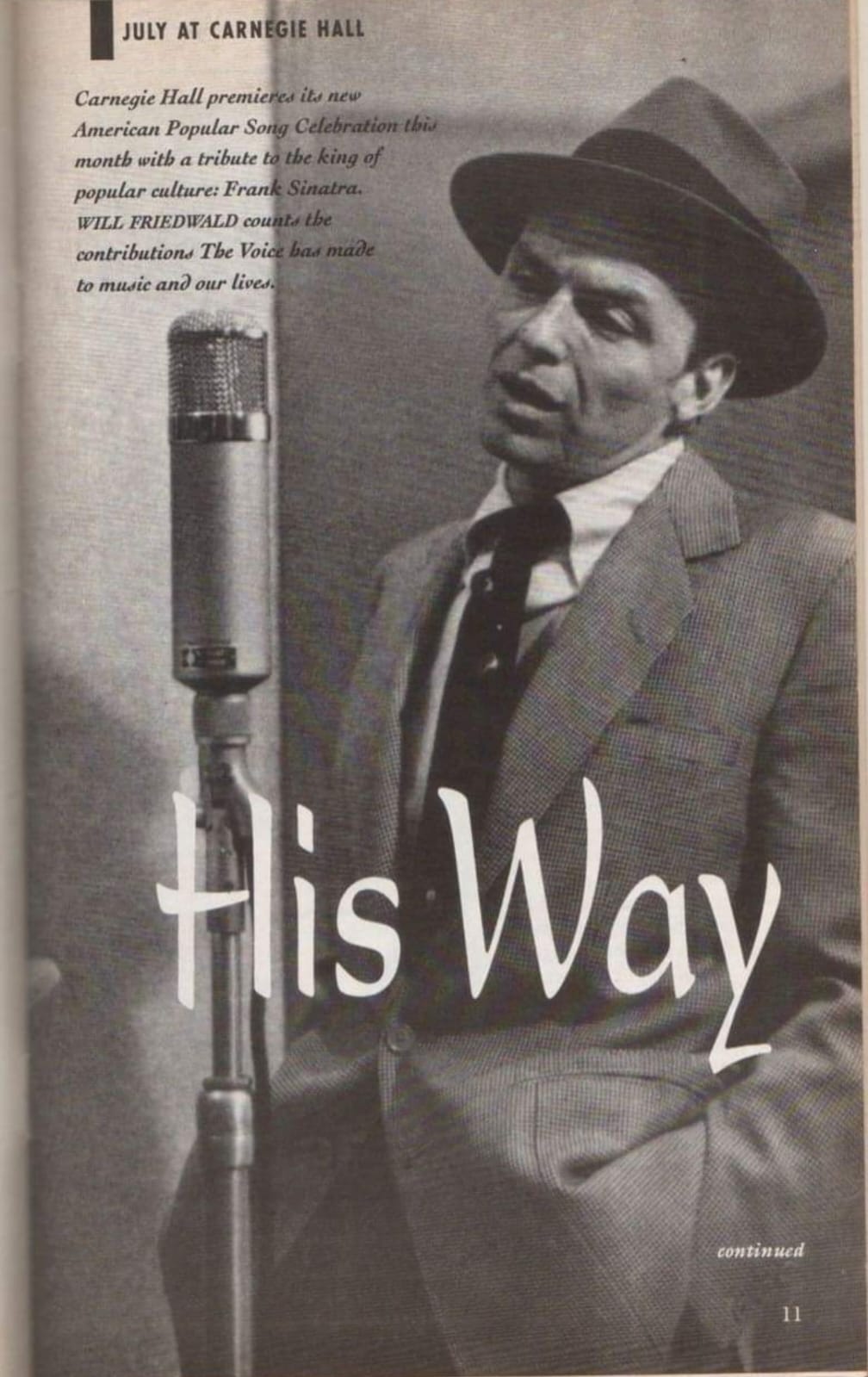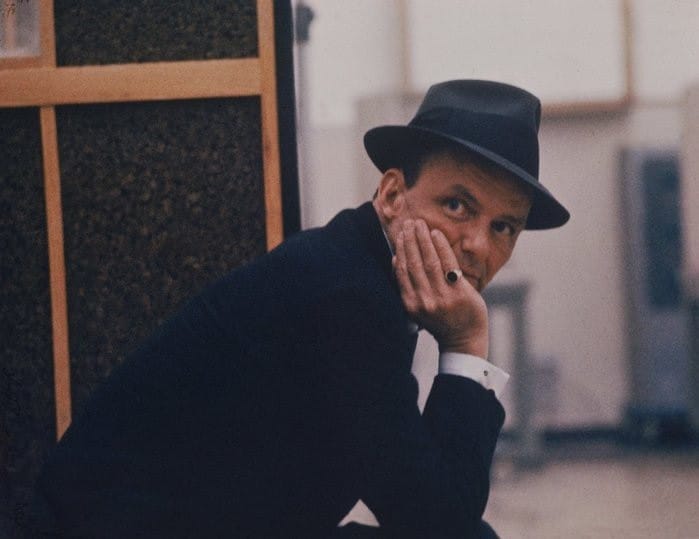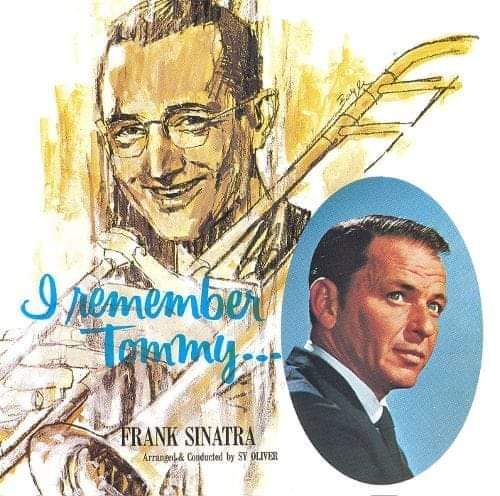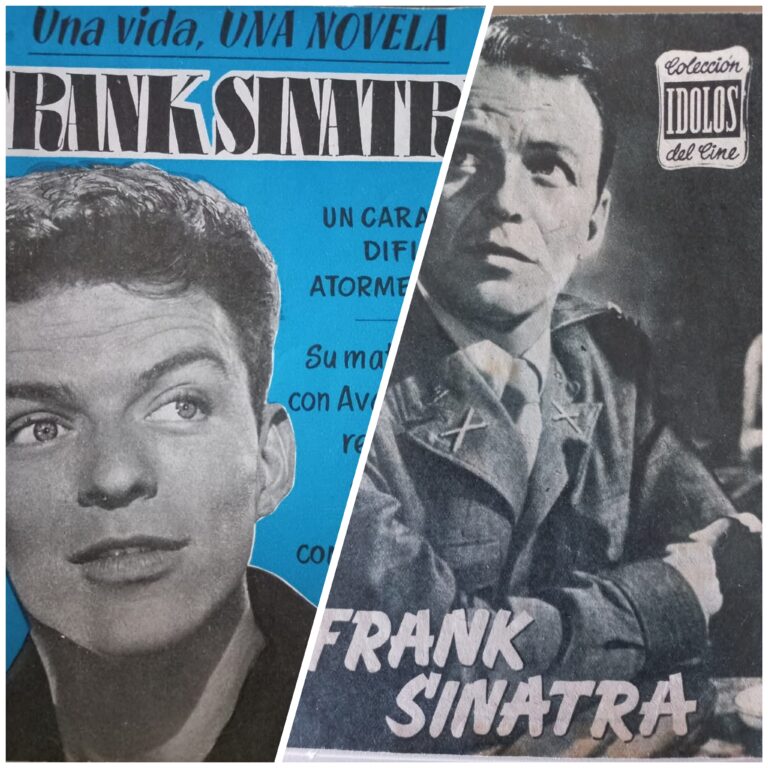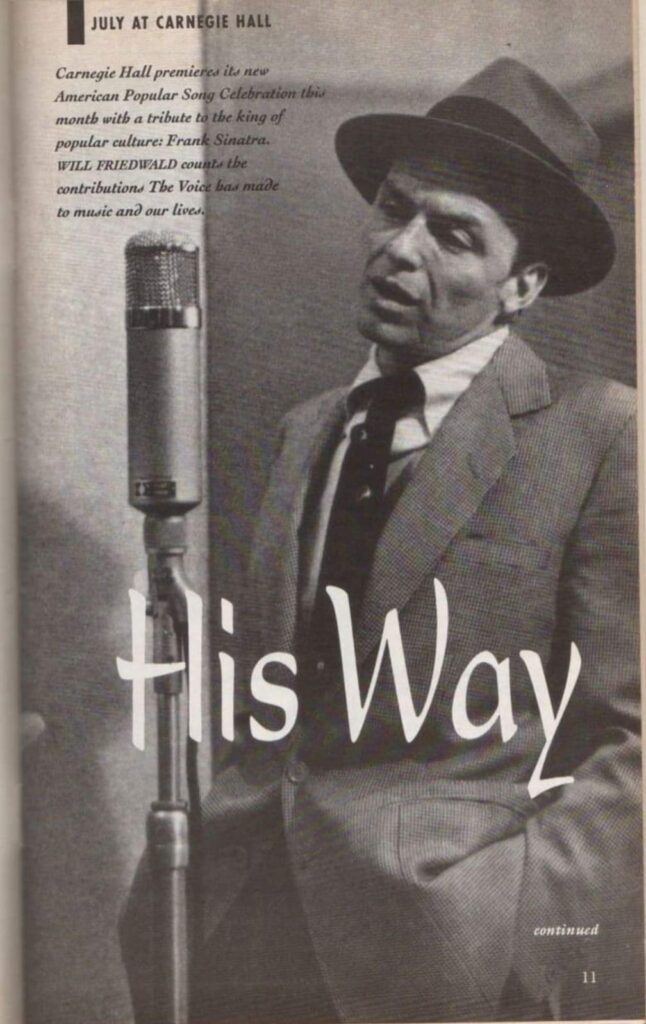
THE LAST YEARS OF FRANK SINATRA
Episode 13
by Mahnuel Munoz
1995 is one of the years of greatest media exposure of Frank Sinatra‘s career, on the occasion of his eightieth birthday. Tribute events, record releases, newspaper articles and book publications that give a good account of his life path and artistic legacy keep the name of the Voice in the headlines. There is also another issue that gives a lot of talk and that has nothing to do with music or movies.
This year his daughter Nancy turns 45 and he needs to give her career a boost. She records a new country-style album, titled “One More Time,” and makes a controversial decision: she poses naked for Playboy magazine, which makes her the star of its May 1995 issue. The photos surprise Nancy’s followers and family. Barbara Sinatra views the images with a mixture of disdain and envy. Frank Junior is baffled. Tina, however, unconditionally supports her sister. And his parents? Both Nancy and Frank refuse to see the photos; The Voice simply tells her daughter to ask for $75,000 instead of the $50,000 offered by Hugh Hefner’s publication. “The Sinatra name has a price,” says Frank. It’s not just your last name. “It’s mine.” In my opinion, the photos are magnificent. Nancy is beautiful.
Also in May, the Hoboken Historical Society (Frank’s hometown) opens an exhibition at City Hall titled “Frank Sinatra Fame, A Hometown Celebration” in which you can see all kinds of objects and photographs related to the singer’s years. happened in the city. There are also screenings of his films, concerts by local musicians and an impersonators contest.
From July 24 to 26, three concerts in tribute to Sinatra will take place at Carnegie Hall in New York, with artists such as Vic Damone, Michael Feinstein and Linda Rondstadt. In the last of the recitals Frank Junior sings, conducts the orchestra and shares with the audience his memories about the origins and development of his father’s music, who did not attend any of the evenings, because at that time he was tormented by strong feelings. pain in the neck, shoulders and back. An operation is ruled out because the singer would not tolerate wearing a neck brace. Doctors choose to prescribe painkillers and two epidural injections. His friend and road manager Tony Oppedisano becomes one of his caretakers. He spends long and painful days awake with the singer, which exhausts him physically and mentally.
One night, Tony is especially tired and goes to bed. He falls asleep immediately, he doesn’t even have the strength to take off his clothes. In a waking moment, he feels a presence in the room and upon opening his eyes he sees Frank, standing next to the bed. He has a blanket in his hands.
“What’s happening? “Is everything okay?” Tony asks, alarmed.
“I thought you were going to be cold,” Frank answered, and then wrapped the blanket around Tony, as if he were a child. A touching gesture from a man who is suffering terribly, but he does not forget to take care of his loved ones.
During the summer, preparations begin for a television special on the ABC network, headed by the veteran and prestigious George Schlatter, a friend of the Sinatra family, who had produced the gala honoring Sammy Davis Jr. in 1990 and the program “Frank, Liza & Sammy: The Ultimate Event” in 1989.
Frank does not like these types of celebrations; During the aforementioned tribute gala to Sammy Davis Jr., he asked Eliot Weisman, his representative, to never put on a similar show for him, but in the end he signed the contract because the profits obtained would go to the fight against AIDS and the center of helps Barbara’s own childhood. Frank’s daughters are not enthusiastic about the idea either, as they have suffered a lot witnessing the difficulties that his father had in the last years of his career.
Until the day of the recording, the couple will have strong arguments at home because of the program. In one of the brawls, Frank throws his dinner plate against the wall:
“Damn it, Barbara, I’m not going! I hate these things. You go and have a good time. Tell everyone that I am very grateful but that I feel unwell. “I’m not going to go“
When he is well, Frank tries to continue enjoying his new retirement. He dines at his favorite restaurant, Matteo’s on Westwood Boulevard. There he can always enjoy his favorite Italian dishes and has a booth in the main dining room, near the back door, so he can come and go discreetly. Usually he prefers not to be bothered, but from time to time he agrees to greet a fan and sign an autograph. Like many people, as he gets older, his manias become more exacerbated. His dislike for his strong odors forces his butler to discreetly smell the guests arriving home so that no cologne or body odor could irritate the singer. It takes him several hours to clean himself. Even garlic, a basic ingredient in many traditional Italian recipes, has come to be disliked.
On August 22, Democratic Congressman José Enrique Serrano introduces a bill to award Frank a congressional gold medal in recognition of his notable career as an artist and humanitarian. “Sinatra has left a mark on American musical history. His prolific career has earned him international acclaim as one of the most talented singers of the 20th century. I discovered his music when I was five years old, when my father returned to Puerto Rico after serving in World War II and brought back a collection of Sinatra 78 RPM records. I’ve been a fan ever since. When I was little, listening to Sinatra’s good music and his perfect diction helped me learn English. I understand that schools in Japan and Germany have also used his music to teach English. Over the years, my political ideas have been born from the ideals of Robert Kennedy and Martin Luther King Junior. And it is the romantic music of Frank Sinatra, along with the support and faith of my family, that has brought the necessary balance to face my daily responsibilities. In addition to giving great music to the world, Sinatra has been involved in numerous humanitarian and social justice acts throughout his life. The law will be approved in the month of October.
Meanwhile, the world is enjoying a resounding revitalization of Frank Sinatra’s work. In October Columbia releases “The Best Of The Columbia Years: 1943-1952,” a compilation of four compact discs with almost a hundred songs from his first era as a solo singer. Capitol competes with “Sinatra 80th- All The Best” and “Sinatra 80th In Concert”, two anthologies with studio and live material, respectively. But no release is more notable than “The Complete Reprise Recordings”, the box set with all the studio recordings from the Reprise period (1960-1988), affectionately known as “The Suitcase”.
The best book ever written about the musical work of The Voice is also released: “Sinatra! The Song Is You. A Singer’s Art” by Will Friedwald. The first version of the book “Frank Sinatra: An American Legend” written by his daughter Nancy also arrived in bookstores, a compendium of the most important dates in the life and career of the performer, seasoned with testimonies from Frank himself, as well as from family, friends and professional colleagues.
If you want to visit more articles about the life of Frank Sinatra enter the following Sinatra Radio 24h link: https://sinatraradio24h.com/category/articles/
We remind you that you can also listen to Sinatra Radio 24 hours on your mobile phone by downloading our free applications for Android in the Play Store https://play.google.com/store/apps/details?id=sinatra.radio24h for iPhone in the Apple Store https://apps.apple.com/app/sinatra-radio-24h/id6599859344

